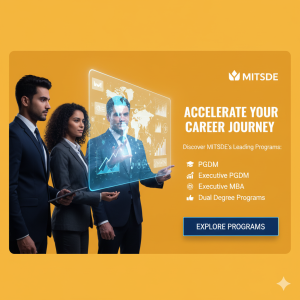A study suggests that the Travel & Tourism sector contributed 7.6% to global GDP. The tourism sector contributes a significant chunk to the GDP of a country. It is an essential source of foreign currency inflow.
The tourism industry has different types like luxury, leisure, adventure, eco, cultural, medical, and wildlife. Making good marketing plans for this sector needs much work. Hence the sector demands skilled marketing professionals to achieve their marketing goals.
In the tourism industry, marketing strategies concentrate on attracting tourists to various destinations, hotels, attractions, and activities.
Here are a few considerations for creating a successful marketing strategy –
- Know your product – Marketers must know the features and benefits of the company’s product or service. They should highlight it to suit their audiences’ tastes and preferences. They must use the right marketing mix to reach their target audience. They should create a marketing strategy around the competitive offering relevant to the audience.
- Know your customer – Understand your customer mindset and what works for them. Know the preferences and interests of the potential audience. Tailor your marketing strategies to match their needs. For example, for a place with religious importance, marketers should highlight the place, its customers its key attributes.
- Understand the pricing- In a competitive market, prices are commonly used to change constantly. Customers’ spending depends on destination, purpose of travel, options available, and access to the airport or train station. All these factors make the customer price sensitive, except for medical tourism.
- Using digital media- Travelers often research the destination before travel. Customers gather information through websites, social media pages, and online reviews in this digital age.
Marketers can attract the audience’s attention through captivating photographs, videos, and blog posts. Visual content works best when promoting destinations. Hence, companies should invest in creating their presence on various digital platforms.
- Word-of-mouth – Word-of-mouth is a powerful tool in the tourism industry. Positive recommendations from friends, family, or influential personals can significantly impact a person’s decision to visit a particular destination.
Additionally, influencer marketing has gained popularity. Travel influencers with large social media followings promote various tourist attractions. Their engaging content and personal experiences can inspire travellers to embark on their adventures.
- Mobile apps- Many companies like to have their own mobile and desktop apps for ease and convenience of the customers. The apps also provide a mode of communication with customers. The companies can display their product packages, price discounts or additional customer benefits.
- Partnerships and collaborations – Tourism is an extensive ecosystem. It has many components like air travel companies, tour operators, car rentals, hotels, restaurants, amusement activities, etc.
Collaborations or partnerships among these components play a significant role in offering the best prices or tour packages. Travel agencies, hotels, and airlines often collaborate to offer exclusive travel packages. They can offer exclusive packages through these partnerships that make their packages more attractive.
Experts expect the global tourism industry to grow from $9.2 trillion in 2022 to $12.4 trillion in 2030.
Marketing in the tourism industry is a fascinating world where creativity, storytelling, and technology converge. It’s all about capturing the imagination of potential travellers and inspiring them to explore new horizons.
How MITSDE helps to create ingenious marketers and helps you achieve your marketing objectives?
MIT School of Distance Education (MITSDE) is an institute that understands the current skills gap in the market. It strives hard to bridge the gaps. MITSDE offers AICTE-recognized and approved distance learning courses.
The Post Graduate Diploma in Management courses impart relevant skills and a core understanding of the business world.
For this purpose, MITSDE brings to you PG Diploma in Marketing Management (PGDM Marketing Management). The online PGDM Marketing course is a 21-month course and covers concepts like –
- Basics of marketing
- Market research & testing
- Project Management
- Strategic Marketing
- Product and Brand Management
- Digital Marketing
- Business Communication
- Finance management
It also gives you hands-on training on the latest marketing tools. Equipped with these tools and techniques, the marketing course for tourism and hospitality management will take you a long way.
MITSDE also offers a dedicated team of student success managers to assist learners’ academic journey.
The placement cell offers resume-building and career-building sessions to help secure reward learners.
Lastly, initiatives like MITSDE Labs and Harbour offer a perfect blend of practical hands-on training and psychological counselling.
The bottom line is that MITSDE offers a 360-degree learning approach that guarantees a rewarding career.



